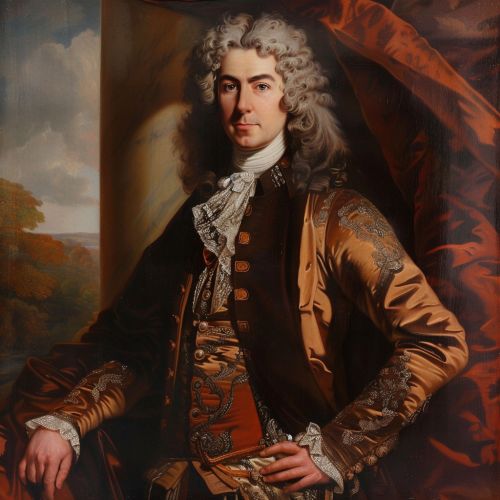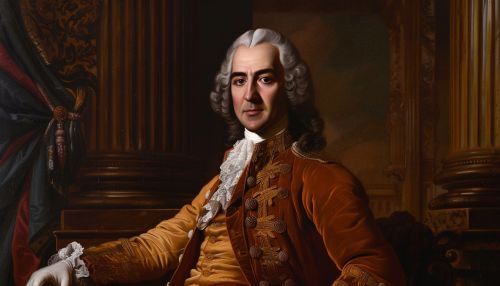John Stuart, 3rd Earl of Bute
Early Life and Education
John Stuart, 3rd Earl of Bute, was born on May 25, 1713, in Edinburgh, Scotland. He was the son of James Stuart, 2nd Earl of Bute, and Lady Anne Campbell. The Stuart family was part of the Scottish nobility, and John Stuart was raised in an environment that emphasized education and public service. He attended Eton College, one of the most prestigious schools in England, where he received a classical education that included studies in Latin, Greek, and philosophy.
Political Career
Entry into Politics
John Stuart's political career began in earnest in 1737 when he succeeded his father as the 3rd Earl of Bute. His early political activities were largely confined to Scottish affairs, but he soon expanded his influence to the broader British political landscape. He became a close associate of Frederick, Prince of Wales, and through this connection, he gained entry into the inner circles of British politics.
Prime Ministership
John Stuart's most notable political achievement was his tenure as Prime Minister of Great Britain from 1762 to 1763. He was appointed by King George III, who had a great deal of trust in him. Bute's term as Prime Minister was marked by significant events, including the conclusion of the Seven Years' War and the signing of the Treaty of Paris.


Policies and Reforms
During his time in office, Bute implemented several policies aimed at stabilizing the British economy and reducing the national debt. He introduced a controversial cider tax, which led to widespread public discontent and ultimately contributed to his resignation. Despite his short tenure, Bute's policies had a lasting impact on British fiscal policy.
Personal Life
Marriage and Family
John Stuart married Mary Wortley Montagu, the daughter of the famous writer Lady Mary Wortley Montagu, in 1736. The couple had eleven children, many of whom went on to have distinguished careers in their own right. Bute was known to be a devoted family man, and his correspondence reveals a deep affection for his wife and children.
Interests and Hobbies
Apart from his political career, Bute had a keen interest in botany and horticulture. He was a patron of the Royal Botanic Gardens at Kew and contributed to the development of botanical science in Britain. His extensive collection of plants and botanical illustrations was one of the most renowned in Europe at the time.
Legacy and Impact
Contributions to Science
John Stuart's contributions to botany were significant. He supported the work of several prominent botanists, including Joseph Banks and Daniel Solander. His patronage helped to establish Kew Gardens as a leading center for botanical research.
Historical Assessment
Historians have had mixed assessments of Bute's political career. While some criticize his handling of the cider tax and his perceived favoritism towards Scotland, others acknowledge his efforts to stabilize the British economy and his contributions to science and culture.
See Also
References
- Black, Jeremy. George III: America's Last King. Yale University Press, 2006.
- Cannon, John. The Oxford Companion to British History. Oxford University Press, 1997.
- Hibbert, Christopher. George III: A Personal History. Viking, 1998.
